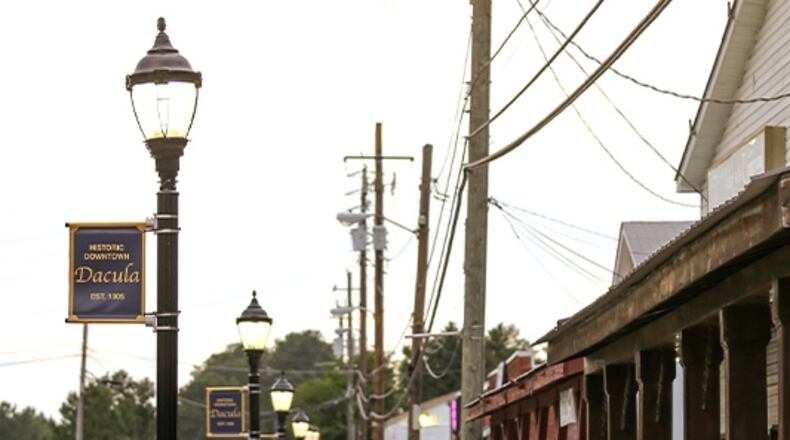Three cities agreed earlier this year to pay Gwinnett County’s tax commissioner a new fee for tax collection that will supplement her salary. But one of those cities doesn’t intend to fork over the dollars in the future.
At a Thursday meeting, Dacula City Council unanimously voted to install software that will allow city staff to handle their own tax billing starting next year.
The decision came after Dacula paid Gwinnett County Tax Commissioner Tiffany Porter a $2-per-parcel fee for collecting the city’s taxes, in addition to paying the county $1.80 per parcel. Dacula paid $10,871 for both those collection fees in 2021, of which slightly more than half will supplement the tax commissioner’s salary.
In order to prepare their own property taxes in the future, the city will pay a one-time fee of $18,000 to install the software from RDA Systems, then $2,750 annually after the first year for support and updates.
It will take approximately 10 weeks for Dacula to install the software, said Finance Director Heather Coggins. The city didn’t have enough time to start in-house collections before this year’s property taxes needed to be mailed out in August, she said.
“It was a better move financially to go ahead and pay the extra (fee) and move forward seamlessly ... than to put the brakes on everything,” said Dacula Mayor Trey King.
The state Legislature hastily passed a bill — later signed by Gov. Brian Kemp — that aims to prevent the tax commissioners in Fulton and Gwinnett counties from supplementing their salaries with fees. It only affects counties with 14 or more cities located wholly or partially within it.
Lawrenceville, Lilburn, Snellville and Sugar Hill chose to collect taxes on their own. Berkeley Lake agreed to pay a $1-per-parcel fee for the tax commissioner to collect, while Dacula and Peachtree Corners paid $2-per-parcel fees. The fees from the three cities will raise her annual salary by more than $34,000.
Handling its own tax billing will save Dacula dollars in the future, Coggins said. The cost was significantly cheaper than what other cities paid to set up their own tax billing, she said, as staff already used the company’s software for other purposes.
King worried that it could’ve cost the city more in the long-run had it chosen not to contract with the tax commissioner this year. “We were really looking at it from a business standpoint,” he said.
Porter’s office did not respond Friday to The Atlanta Journal-Constitution’s requests for comment on Dacula’s decision.
Porter initially proposed charging eight Gwinnett cities the $2-per-parcel for collecting their taxes, in addition to a $1.80-per-parcel fee to the county. The personal fee would have boosted her $141,098 base salary by more than $110,000.
Other tax commissioners in Georgia participate in the same practice. Porter contends that she deserves additional compensation for handling municipal collections, as she was elected in 2020 to collect on behalf of Gwinnett County, not its cities.
Grayson, the only Gwinnett city to test the new law, entered an agreement with the county and without Porter that seeks to obligate her to collect the city’s taxes without a personal fee. The city filed a lawsuit in July after Porter declined to collect.
Now, Porter is challenging the constitutionality of the state law passed earlier this year.
About the Author
Keep Reading
The Latest
Featured



